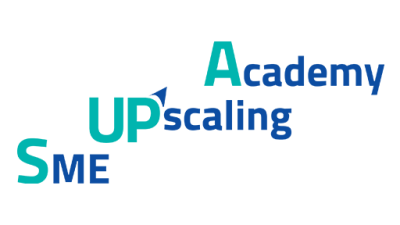SME UPscaling Academy
The project establish a new cross-European Scale Up Network, working across six EU member states.

The project proposes to establish a new cross-European Scale Up Network, working across six EU member states, which will support 140 small and medium size companies (SMEs) to move to the next stage of growth over two years. The profile of participants to be engaged will be senior managers of SMEs that have been established for at least three years, who have a clear ambition to internationalise and grow their company to the next level.
Core engagement with the network takes the form of one small group meeting per month, each group having ten participants. Each group will be from multiple member states and most meetings will be virtual. However, physical meetings will also be supported in order to help establish and sustain the relationships. Each group will be focused on one of four EIT InnoEnergy knowledge and innovation community (KICs) and include companies in sectors relating to that KIC.
A group of 14 organisations – six HEIs and eight other organisations from industry - will act as patrons of the network. Each organisation will nominate a senior manager to the Programme Steering Group and also nominate two managers with future potential to be trained in the role of Group Facilitator. This role has been shown by experience to be one that is valued for career development and therefore facilitators give their time free of charge.
The project budget will support the organisation of mentoring and of training and workshops on issues that are regularly raised by participants as ones they need support on, including most effective new uses of digital technology - using the Just-in-Time Learning principle. The central task all will undertake is to prepare a strategic plan for their company to grow to the next level. To help them do this, training will be organised specifically on how to do this.
SME networks have traditionally been local by their nature. However, following the experience of the pandemic, there will be much greater openness to attending virtual meetings involving people from multiple member states. This in turn will help to accelerate participants’ readiness to internationalise and develop some critical contacts for that purpose. This proposal therefore will represent a new development in the harnessing of digital technology, not only for access to learning materials, but for interactive learning between entrepreneurs.
An innovative feature of this proposal is that the resulting plans can be submitted for an accredited academic award. This model represents an innovative way for HEIs to engage effectively with SMEs, and if successful could open up a much wider range of possibilities for engagement of HEIs in innovation. The SMEs will provide material for research case studies.



